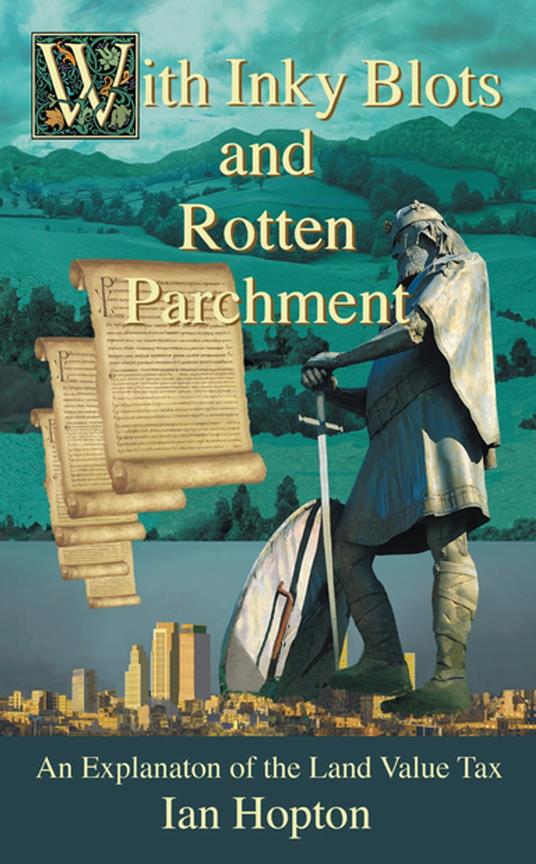‘With Inky Blots and Rotten Parchment––An Explanation of the Land Value Tax’
Published in July 2022 and available in paperback or Kindle on Amazon and other worldwide booksellers
For Amazon links, refer to:
UK & Ireland: https://tinyurl.com/2rabth8y
US & Canada: https://tinyurl.com/mpf9rcrr
Australia & NZ: https://tinyurl.com/2ko36jfn

The book is based on the information contained in this website, with a table of contents and an introduction. It is fully referenced and indexed.
The following reviews are based on the pre-publication manuscript:
Review by Chris Waller, Former IT financial systems designer and contributor to ‘Economania’, Mensa’s website for the special interest group dealing with economics, trade and finance
‘As Britain comes within sight of the end of the Covid 19 crisis the most pressing issue in the immediate future will be that of repaying the enormous sums – expected to total somewhere in the region of £500 billion – borrowed to support the economy during over 18 months of restrictions. The Chancellor of the Exchequer has said that taxes will necessarily rise, much to the chagrin of many in his party.
Ian Hopton’s book is therefore a timely contribution to the vexed question of taxation.
The author begins by reviewing the basic principles of Land Value Taxation (LVT) and then moves on to examine the evolution of economic activity. The history of LVT – for the idea of LVT is by no means new – is then reviewed from its first mention in the 17th century through the 19th century and LVT’s most famous proponent Henry George and on into the 20th century.
In Chapter 5 the author examines the causes of land value and, most importantly to my mind, the ownership of land in the United Kingdom from the Norman invasion and through the Enclosures, the effects of which endure even today. The author establishes both the economic and moral cases for LVT, citing the views of no less than Adam Smith who, we should remember, held the chair of Moral Philosophy at Glasgow University.
Chapter 7 discusses housing, currently the bane of the British economy and a subject which is a frequent topic of conversation of both home-owners and, more pointedly, those aspiring to join their ranks. There is perhaps nothing that excites the passions of the British public so much as house prices.
In the later chapters, the author examines the practicalities of implementing LVT, with particular reference to the phasing out of such taxes as would be made redundant by its introduction. This is the point at which theory comes into contact with the real world and where pragmatism must take precedence over ideological purity.
The author presents case studies in the appendices which examine the actual implementation and experience of LVT and what might be considered lost opportunities.
For all readers, both those already acquainted with LVT and those new to the subject, there is an extensive bibliography for those who wish to study the subject in greater depth. In summary then this book is an apposite, timely and comprehensive contribution to what will be a critical debate about taxation in the near future’.
Chris Waller, 5th October 2021
Review by Chris Wood of the School of Philosophy and Economic Science, London. Ist November 2021.
‘This book is well researched and comprehensive and should serve as a very useful primer for those unfamiliar with economics and taxation. At the same time it could also be read by those who already have a knowledge of land value taxation, since it contains a wealth of information I have not seen assembled elsewhere in one place’.
Chris Wood, 1st November 2021